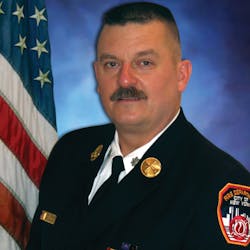Firefighters are the backbone of the fire service. They are the members who perform most of the heavy lifting at fires and other emergencies and catastrophes. However, company officers are the people who are responsible for the development and guidance of these folks toward improved performance and productivity. As such, company and chief officers need many skills and abilities to manage, train and supervise the firefighters who are in their organization.
How is this vital function carried out and what actions must be taken to help firefighters to perform, perform well and perform better as time goes on?
Expectations
One of the most important ingredients of crew development is dealing with expectations.
Expectations are the anticipated behaviors, abilities and performance that company officers can disclose to their firefighters so that they can direct the firefighters’ efforts and development in the desired direction. When a firefighter—or any other person—is clued in on what the boss wants from them, it’s much easier for firefighters to behave and perform satisfactorily.
Company officers should make their expectations clear to several different groups of firefighters to either improve or establish excellence.
When dealing with senior or well-established firefighters, company officers often can establish their expectations via simple, routine conversations around the firehouse, such as at the kitchen table, during training sessions and during other regular gatherings or events in the firehouse. Firefighters who worked with their officers for several years consistently can explain word for word what they know that their officer wants from them. These expectations/wants can include polite and professional language; wearing of clean, properly fitting, maintained uniforms; reporting for shifts or training events on time; familiarity and skilled use of tools and equipment; and other daily skills and abilities that fall within their job description.
New or probationary firefighters are another specific group of firefighters that company officers need to make their expectations perfectly clear to. These newer members, who might have no previous experience with fire department culture or duties, must be exposed more slowly to the set of behaviors and abilities that their officer wishes them to conform to. Unlike as is the case with more senior people, recruits might need repeated and more clearly defined instructions when these conditions and behaviors are explained.
Consequence
The second element of improved performance and productivity is consequence. The definition of consequence is “the effect, result or outcome of something occurring earlier.” The “something” that’s mentioned in that definition is the failure of a firefighter to act, behave or perform properly or in accordance with the previous direction or instruction of the officer. Simply stated, once a company officer instructs and informs a recruit firefighter of what that person is expected to do, how that person is expected to behave and what actions are out of bounds, the recruit firefighter must rise to the occasion and perform.
In addition to the lessons and instructions of the officer, the new recruit is routinely exposed to the correct behavior and example of the more senior crew members. These two situations should help cement the proper behaviors into the new recruit’s routine.
Discipline
The officer might need to wade into the discipline arena. Obviously, this course of action might be necessary for both senior and new firefighters and should be handled in accordance with the department’s progressive discipline policy.
As indicated by the word “progressive,” this process is designed to address performance or behaviors that must be modified and improved, rather than to simply deliver punishment.
Good policies often begin with simple verbal discussions, followed by periods of improved behavior. If the behaviors don’t improve or the violation is repeated, the actions that the officer takes “progress” to more serious levels. The goal here is, of course, to improve the performance of the firefighter.
So, as you can see, the two vital elements of a company or chief officer’s work to develop an excellently performing firefighter are expectations and consequence. That’s a rather simple recipe for success.
About the Author
John J. Salka Jr.
Battalion Chief
JOHN J. SALKA JR., who is a Firehouse contributing editor, retired as a battalion chief with FDNY, serving as commander of the 18th battalion in the Bronx. Salka has instructed at several FDNY training programs, including the department’s Probationary Firefighters School, Captains Management Program and Battalion Chiefs Command Course. He conducts training programs at national and local conferences and has been recognized for his firefighter survival course, “Get Out Alive.” Salka co-authored the FDNY Engine Company Operations manual and wrote the book "First In, Last Out–Leadership Lessons From the New York Fire Department." He also operates Fire Command Training, which is a New York-based fire service training and consulting firm.

